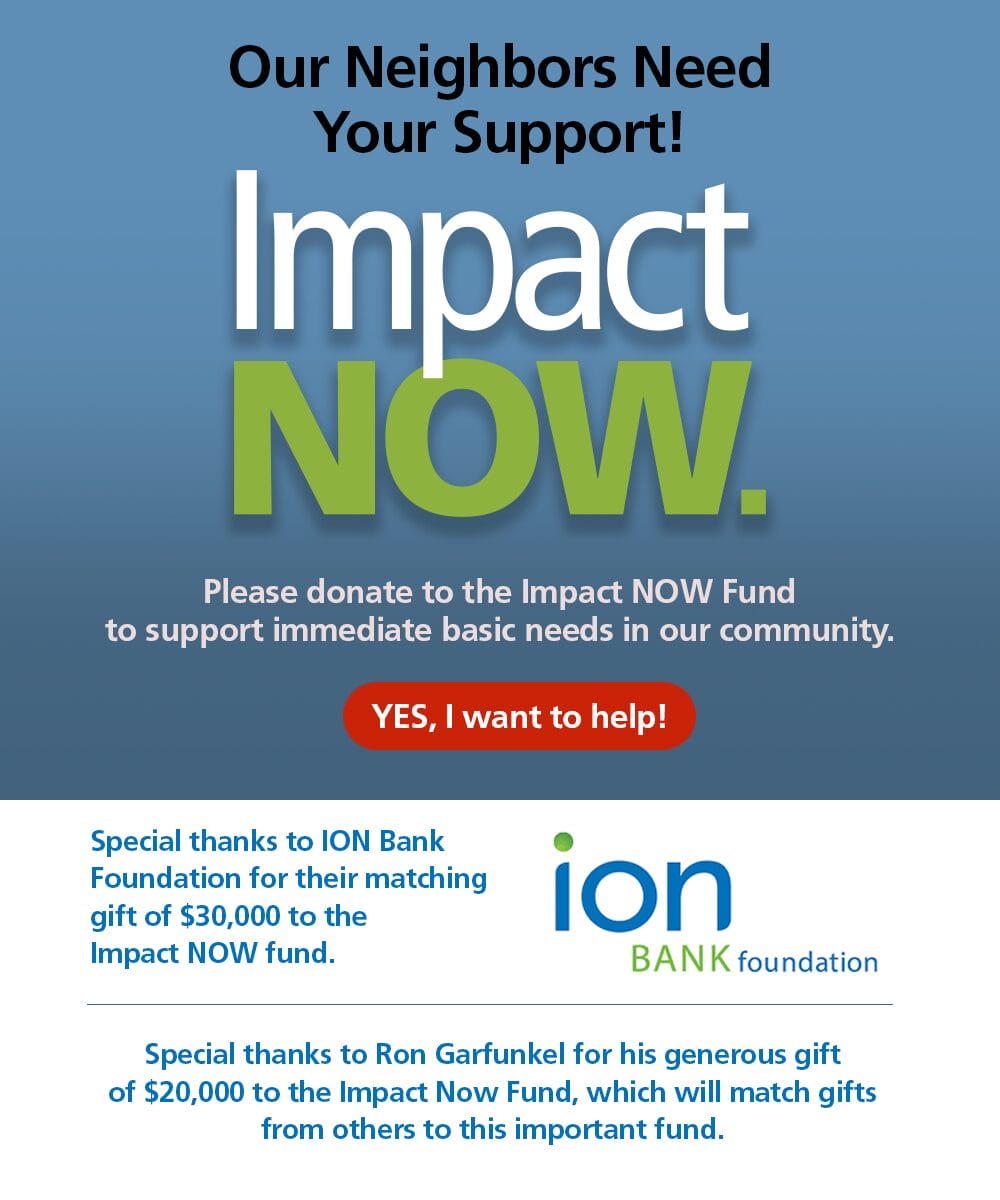Grants Awarded in 2019
Area of Greatest Need
Greater Waterbury Interfaith Ministries (Waterbury): Repairs to Food Pantry Building – up to $10,000
Arts and Culture
Cradle to Career
Economic Vitality
To support capacity growth by developing sustainable revenue streams and broadening the organization’s economic footprint through expanded outreach to farmers and retailers. It will also enhance fresh food access points for citizens by offering consistent, year-round farmers’ market opportunities.
To provide job readiness training to unemployed adults with substantial barriers to employment, such as lack of formal education or a history of incarceration. This intensive case management program teaches professional workplace norms utilizing a motivational curriculum on attitude and behavioral change with a focus on building leadership skills and public presentation expertise.
To provide employment skills training, job placement, and career coaching in the culinary field. Confidence-building employment workshops include computer skills, applications, employer expectations, interviews, and resumes.
to fund a planning grant to explore the needs and resources for creating a permanent Waterbury Reentry Welcome Center for prisoners released back home in Waterbury. Over 840 people return to Waterbury from prison annually, which is over 10% of all CT prison releases. 290 of them return to Waterbury at “end of sentence” (as opposed to those on parole, who receive monitoring and follow-up support services), with a 12-month recidivism rate of 25%.
To build the capacity of the regional Coordinated Access Network (CAN) to make homelessness rare, brief, and non-recurring in Greater Waterbury and the Litchfield Hills. CCEH has worked with the region’s providers to set goals in the coming year to work towards ending homelessness in the region by the end of the Governor’s first term.
To increase education and outreach efforts to individuals and families likely to experience discrimination in the greater Waterbury and Litchfield Hills region. By educating low-income families about their housing choices and the fair housing laws, the Project will present residents of the region’s most impacted neighborhoods with the opportunity to choose the home that is best for them.
To provide classes in English as a Second Language and U.S Citizenship, free of charge to hundreds of adults in the greater Waterbury area (90% are low/extremely low income).
To hire a bi-lingual Specialist Support Consultant, which will help to boost the capacity of this small organization to serve more clients, while addressing the deficit of bilingual staff at community service providers.
To bring a systems change effort to the South End of Waterbury, aiming to lower the 25% unemployment rate in Census Tract 3505 to 12% by addressing interconnected issues of education, language, access, childcare, job opportunities, and resident engagement.
To support the collaboration of NHSW and Shekinah Christian Church on the adaptive reuse of a 6-story, 186,620 square foot warehouse building. The goal is to provide this underserved community with 100+ units of affordable housing, commercial and retail space, greenspace and a garden, helping to further the redevelopment of a very blighted area that is essential to economic growth in Waterbury’s North End.
To provide employment services that will assist homeless individuals/families (or those at-risk of becoming homeless) to achieve jobs, housing and economic self-sufficiency. The Home Works Program is an innovative approach that affords individuals/families the platform they need to pursue economic independence, and will act as the basis of a collaboration of community service providers.
To strengthen the Waterbury Family Emergency Shelter by providing funding to ensure the shelter is adequately staffed. Additionally, the project will provide funding to train staff in Housing First best practices, First Aid & CPR, which are critical to the services provided at the shelter.
To support the placement of a highly-qualified college/university student at a regional Council of Government (COG) over the summer to assist towns with the uptake and implementation of Sustainable CT. This work offers a cohesive approach to policy and practice for participating towns, creating unity and action towards shared goals.
Environment
To support a program providing hands-on, inquiry-based lessons to support the elementary teachers’ transitions to the Next Generation Science Standards. This grant will allow 8 Waterbury classrooms to each receive 2 Audubon-led lessons in their school and 1 field trip to the Bent of the River Audubon Center.
To significantly strengthen the state’s land trusts and their capacity to save the state’s natural and cultural resources, agricultural lands, and high quality of life. In support of this goal, CLCC has brought together a cohort of eight conservation organizations — six land trusts, a regional watershed association, and an Audubon Center — to explore opportunities to establish a collaborative relationship, select a path forward, and set a plan for implementation.
To pilot recently developed Flanders Next Generation Science Standards (NGSS) based curriculum/programs to Waterbury Public School students, providing hundreds of students with experiences that will have an impact throughout their academic careers and for a lifetime.
To support design development for a replacement culvert structure that will reduce flood risk and allow for full passage of aquatic organisms, while serving as an educational demonstration site for adaptation by neighboring communities.
To continue the development of this successful environmental speaker series. MUUS hopes to establish the Greater Woodbury Environmental Forum as a leading venue for cutting edge speakers and public discourse on critical environment issues.
To support a comprehensive, resident-driven campaign focused on seven brownfield and toxic municipal sites in Waterbury and Naugatuck. The campaign is designed to use a community organizing approach in order to move all properties forward towards adaptive reuse during 2020.
To combine the strengths of Low Impact Development (LID) with the goals and objectives of the SustainableCT movement, working towards resiliency and climate adaptation in the natural and built environment. NWCD will work with town land-use agencies and citizens to advance understanding and commitment to promoting and adopting resilient development practices.
To implement sustainable and environmentally considerate trail designs for multi-passive recreational activities. The Rockhouse West Trail Expansion goals are focused on increasing the number of passive recreational users through accessing unique topographic/geologic features with approximately two miles of intermediate trails, while providing Oxford High School students with the opportunity to earn an internship position on the trail crew.
To provide employment and environmental learning opportunities for students in order to encourage the next generation of environmental professionals and advocates. The program will foster a sense of responsibility for natural resources and civic engagement with on-the-ground, engaging initiatives that have a direct impact on polluted runoff abatement, pollution prevention and environmental education in the community.
Weantinoge Heritage Land Trust (Kent): Partner Intern Program: Year 2 - $15,000 (of $25,198 request)
To recruit and hire two summer land stewardship interns to carry out preserve maintenance, monitoring, and digital mapping for participating land trusts throughout the CCF service area.






